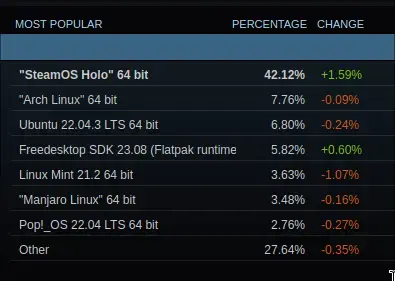You might start googling things like “OSINT handbook” or “OPSEC guide” and see what people put together to protect yourself from data-mining, fingerprinting, and various other ways to protect your personal information.
Open Source Intelligence (OSINT) is the practice of using freely-available resources to collect information on something/somebody. Learning about the tools used to perform OSINT searches is a good first step to determine which databases you may want to scrub yourself from.
Operations Security (OPSEC) is a military term that involves the security and protection of any data – classified or unclassified – that could potentially be used against you. OPSEC sounds exactly what you’re looking for, but I mention both terms because looking at potential attacks from both a red team (attacker) and blue team (defender) is a good practice to make sure you’re not missing any vulnerabilities (in other words, even if your only goal is defense, it is beneficial to think like an attacker and visualize how you would attack yourself).
One such result of a search shows John Troony’s Opsec for the Paranoid gist.
Some example of people-finder sites like LexisNexus from his document would be:
## People-Finder Sites
- BeenVerified: http://www.beenverified.com/
- DOBSearch: https://www.dobsearch.com/
- Intelius: http://www.intelius.com/
- LexisNexis: http://www.lexisnexis.com/en-us/products/public-records.page
- Spokeo: http://www.spokeo.com/WhitePages: http://www.whitepages.com/
- WhitePages: http://www.whitepages.com/
But the nearby sections in that document may be of use to you, like “Opt out of Data Mining”.
OSINT/OPSEC is a giant rabbit hole you can go down, and you can get as paranoid as you want – scrubbing social media sites or poisoning the well of sites that collect data indiscriminately and don’t let you remove it, all the way to the ultra-paranoid burner phones and entire false identities (as long as you hopefully stay within the bounds of what is legal in your country or at least keep your laws in mind when you do step outside of the law). If you are interested in stuff like that, you might start looking at things like The Hitchhiker’s Guide to Online Anonymity.
Is Arch the most popular Linux distro at 0.15% of 1.95%? What’s missing here? Steam OS?
A couple of things – yes, SteamOS is by far the most popular Linux distro and it was left off this part of the list, and also Arch is the most popular because it’s a rolling release distro, so we’re all running “Arch Linux” no matter how far behind we are on patching our system. Ubuntu would probably come out on top if you bundled every other version besides 22.04.3 LTS together into one line item.
Here’s a screenshot of the Linux breakdown with a few more entries (though most are still bucketed under Other). SteamOS alkone is almost half of Linux deployments.

Why are Arch and Manjaro in quotes, but Ubuntu LTS and Linux Mint aren’t?
They’re probably putting the rolling releases in quotation marks – I’m guessing they’re pulling the Description field from “lsb_release -a”, where “Arch Linux” says just that, while each Ubuntu/Debian/Mint/etc distro will show specific version numbers (and that would explain why Arch shows up as a higher share than Ubuntu 22.04.3 LTS) – I’m sure there are several more Ubuntu entries in their list that would total more than Arch’s percentage. I’m not sure why they arbitrarily truncated the Linux list at 4 while showing 5 Windows/Mac releases, though.
EDIT: Found another screenshot where they list “SteamOS Holo” in quotes, too. So I guess they just include quotes for every distro that doesn’t show a version number in that field.

What protocol are you using to connect to your mail service and what third-party apps do you need it to be compatible with? POP, IMAP, SMTP, or those protocols with various SSL/TLS implementations? Thunderbird will likely handle anything you throw at it, but I’m at a loss when you start talking about third-party apps without more info.


Oof. I did not know about that. That’s unfortunate!